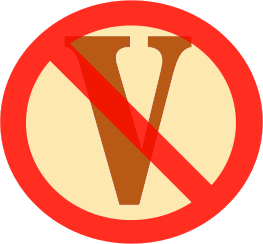Don't know your body type? Take our free Dosha quiz!
TAKE THE QUIZ
12 likes ![Save this Symptom. Save this Symptom]() SAVE SYMPTOM SAVE SYMPTOM1-2 bowel movements a day is ideal. Stool should be like a banana in size, shape, and consistency with a medium brown color. The surface should be smooth but not slimy.
1 like ![Save this Symptom. Save this Symptom]() SAVE SYMPTOM SAVE SYMPTOMA square shaped face is typical of Pitta-Kapha - who tends to have good muscle definition and a strong jawline.
1 like ![Save this Symptom. Save this Symptom]() SAVE SYMPTOM SAVE SYMPTOMAn asymmetry in the face is Vata in nature.
2 likes ![Save this Symptom. Save this Symptom]() SAVE SYMPTOM SAVE SYMPTOMA square shaped face is typical of Pitta-Kapha - who tends to have good muscle definition and a strong jawline.
10 likes ![Save this Symptom. Save this Symptom]() SAVE SYMPTOM SAVE SYMPTOMA broad large chest is a sign of Kapha dosha. When Kapha individuals are balanced, a man's chest will appear like superman, and a women's curvy. The muscles on the chest reflect earth element. The size of the breast reflects the amount of sweet taste...
10 likes ![Save this Symptom. Save this Symptom]() SAVE SYMPTOM SAVE SYMPTOMEven though a Kapha person may feel psychologically insecure, their body is generally abundant & secure. This security bestows Kapha with a caring, generous, calm & patient nature. Kapha individuals appear calm outwardly but often experience a storm of...
6 likes ![Save this Symptom. Save this Symptom]() SAVE SYMPTOM SAVE SYMPTOMPitta individuals tend to maintain a constant weight. They have a high enough metabolism to prevent weight loss, yet a strong enough digestion to be well nourished.
36 likes ![Save this Symptom. Save this Symptom]() SAVE SYMPTOM SAVE SYMPTOMInspiration, creativity and imagination activate the crown chakra and an experience of your spiritual nature, reflecting the minds associative, relational nature. Although pleasant, it may be impossible to discern whether the spiritual experience is of...
![]()
ENZYME DEFICIENCIES
FREE PRESENTATION
IMPROVE ENZYME OUTPUT & MASTER YOUR DIGESTION
GET IT NOW FREE
32 likes ![Save this Symptom. Save this Symptom]() SAVE SYMPTOM SAVE SYMPTOMDry, dark, frizzy hair appears unruly with frayed and split ends. It tends to be a trait of Vata type individuals.
The health of the hair reflects...
10 likes ![Save this Symptom. Save this Symptom]() SAVE SYMPTOM SAVE SYMPTOMOn the whole, women are more moist than men. A Chinese medical quote goes, "Women have blood to give, men have energy (Qi) to give." This excess of blood is eliminated through menses, which has a draining effect. Lack of menstruation creates a...
27 likes ![Save this Symptom. Save this Symptom]() SAVE SYMPTOM SAVE SYMPTOMFine, straight, or reddish hair tends to be thin and light in texture. It can be fair in color, like a strawberry blonde, or a bright, vibrant red. This hair type is characteristic of a
7 likes ![Save this Symptom. Save this Symptom]() SAVE SYMPTOM SAVE SYMPTOMKapha individuals are afraid of changing the status quo. They love consistency and stability. Stability itself is a good thing, but when out of balance Kapha is unable to make necessary changes.
2 likes ![Save this Symptom. Save this Symptom]() SAVE SYMPTOM SAVE SYMPTOMA heart shaped face is a face that is wider at the top than the bottom. We speculate this Pitta symptom is due, poetically, to "heat rising to the head." Pitta individuals in general may have higher bilirubin levels than other body types, stimulating a...
37 likes ![Save this Symptom. Save this Symptom]() SAVE SYMPTOM SAVE SYMPTOMSharp intelligence, efficiency, and perfectionism are signs of the liver is stimulated and perhaps overworked. You may experience a sense of shame, frustration, or tension in the solar plexus area - a sign that the shame or self-criticism is too much...
8 likes ![Save this Symptom. Save this Symptom]() SAVE SYMPTOM SAVE SYMPTOMKapha's stability, generosity, and loving nature is visible in their facial expressions, and especially their eyes. Large eyes also imply fatty deposits behind the eyes.
4 likes ![Save this Symptom. Save this Symptom]() SAVE SYMPTOM SAVE SYMPTOMKapha individuals have large, smooth lips due to the richness of rasa dhatu, the blood plasma.
![]()
AYURVEDIC FACE ASSESSMENT
FREE PRESENTATION!
Learn how to assess constitution by a person's face.
GET IT NOW FREE
4 likes ![Save this Symptom. Save this Symptom]() SAVE SYMPTOM SAVE SYMPTOMA long, thin face is a sign of Vata. Vata in general has long, thin limbs and features. We speculate this is due to their thin fluids.
5 likes ![Save this Symptom. Save this Symptom]() SAVE SYMPTOM SAVE SYMPTOMPitta individuals tend to be very balanced, even in the size of their chest.
6 likes ![Save this Symptom. Save this Symptom]() SAVE SYMPTOM SAVE SYMPTOMThe width of the hips bones do not change over a person life, making the hips and bones in general excellent indicators of one prakruti, or constitution. Pitta individuals have medium hip width.
9 likes ![Save this Symptom. Save this Symptom]() SAVE SYMPTOM SAVE SYMPTOMOnly perfectionism can satisfying Pitta's gnawing sense of hopeless and shame, experienced as burning tension in midriff / solar plexus area. Spending money on luxuries alleviates this ever present self criticism somewhat. Shame is the classic sign of...
8 likes ![Save this Symptom. Save this Symptom]() SAVE SYMPTOM SAVE SYMPTOMPitta individuals have adequate heat and high metabolism which prevents the buildup of bulk. They also have strong digestion, which nourishes their tissues, preventing the wasting one sees with Vata. The result is a finely-chiseled physique. Strong...
17 likes ![Save this Symptom. Save this Symptom]() SAVE SYMPTOM SAVE SYMPTOMOily face can indicate heat moving upward, especially when the extremities are cold. It can also indicate that sweet, Kapha thick blood is blocking circulation to the extremities.
9 likes ![Save this Symptom. Save this Symptom]() SAVE SYMPTOM SAVE SYMPTOMKapha's stability leads to acquisition of wealth. Out of balance, Kapha individuals tend to horde wealth and belongings. They have trouble letting go.
3 likes ![Save this Symptom. Save this Symptom]() SAVE SYMPTOM SAVE SYMPTOMA round, wide, moon face is typical of Kapha with high cortisol and weak blood (rakta dhatu).
![]()
AYURVEDIC SPEECH ASSESSMENT
FREE PRESENTATION!
Learn how to assess constitution by a person's speech patterns.
GET IT NOW FREE
8 likes ![Save this Symptom. Save this Symptom]() SAVE SYMPTOM SAVE SYMPTOMThe width of the hips bones do not change over a person life, making the hips and bones in general excellent indicators of one prakruti, or constitution. Slender, thin hips are one of the root indicators of Vata constitution.
7 likes ![Save this Symptom. Save this Symptom]() SAVE SYMPTOM SAVE SYMPTOMKapha individuals have steady emotions, a sign of Kapha's instability. Once angered or crossed however, Kapha people take a very long time to calm down and trust a person again.
6 likes ![Save this Symptom. Save this Symptom]() SAVE SYMPTOM SAVE SYMPTOMKapha individuals take a long time to get started. They lack initiative and enthusiasm. However, once Kapha is motivated, they stay motivated for a long time and have great stamina.
6 likes ![Save this Symptom. Save this Symptom]() SAVE SYMPTOM SAVE SYMPTOMKapha individuals tend to be short and stocky. They easily gain weight. Due to thick fluids and poor circulation, limbs are short and tapering.
15 likes ![Save this Symptom. Save this Symptom]() SAVE SYMPTOM SAVE SYMPTOMEyes reflect the speed of thought. To pacify Vata, keep the eyes still. Internally, bring your attention to the front of the eyes, the back, and to the muscles in the sockets. Identify where the eye tension arises from. The darker the eye, the deeper...
17 likes ![Save this Symptom. Save this Symptom]() SAVE SYMPTOM SAVE SYMPTOMThick hair is often glossy, lustrous, and wavy. It is usually characteristic of a Kapha type individual.
Thick, oily hair tends to be a sign of...
10 likes ![Save this Symptom. Save this Symptom]() SAVE SYMPTOM SAVE SYMPTOMThick, cool skin is a sign of thick blood and Kapha dosha.
76 likes ![Save this Symptom. Save this Symptom]() SAVE SYMPTOM SAVE SYMPTOMHair is related to bone and teeth health in Ayurveda. Thick, oily hair is a sign of ojas. Thin, brittle hair is a sign of depletion, or 'excess fire burning the midnight oil.' Heat rises. In a firey, Pitta individual, the heat in the head causes the...
![]()
IDENTIFY YOUR BODY
TYPE SAMPLE LECTURE!
LEARN HOW TO IDENTIFY YOUR BODY
TYPE WITH THIS 45-MINUTE SAMPLE
LECTURE FROM JOYFUL BELLY
GET IT NOW FREE
26 likes ![Save this Symptom. Save this Symptom]() SAVE SYMPTOM SAVE SYMPTOMThin lips are constitutionally natural for Vata. Since light Vata constitutions tend to have thin skin, they often frequently have thin lips. However, thin lips may also be a sign of deficient ojas (nourishment), especially if your constitution is...
34 likes ![Save this Symptom. Save this Symptom]() SAVE SYMPTOM SAVE SYMPTOMThin, dry, cold skin is characteristic of malabsorption and indigestion in underweight Vata individuals. Thin skin has a tendency to develop wrinkles earlier. Thin skin can make you feel cold, especially when swimming. Vata people can protect and...
8 likes ![Save this Symptom. Save this Symptom]() SAVE SYMPTOM SAVE SYMPTOMVata individuals tend to be lanky due to poor digestion, malabsorption, or parasites. Vata individuals have thin fluids, which tends to make the limbs long. Kapha individuals on the other hand, tend to be short and stocky. Due to thick fluids, Kapha...
3 likes ![Save this Symptom. Save this Symptom]() SAVE SYMPTOM SAVE SYMPTOMA triangular or pear shaped face is typical of Kapha. Fluids tend to sink in Kapha (here the opposite of Pitta). They also tend to have more fat. We speculate this leads to wider cheeks and neck, giving the face a pear-shaped appearance.
9 likes ![Save this Symptom. Save this Symptom]() SAVE SYMPTOM SAVE SYMPTOMWide, heavy hips are an unmistakable sign of Kapha dosha.
HOW AYURVEDA WORKS
ARE YOU WONDERING HOW AYURVEDA CAN HELP YOU?
WHY IS AYURVEDA THE RIGHT SOLUTION?
Ayurveda strengthens the body while opposing disorders. It takes a holistic,
systemic approach that looks at the whole body. Ayurveda
shows how to interpret signs and symptoms of imbalance, and how to address them
using diet, lifestyle adjustments, and herbs. It shows a person how to optimize their health on a continual basis. You can't
take the doctor home with you, but you can take Ayurveda home with you.
Ayurveda is the most advanced and easy to use home system for self healing.
HOW DOES AYURVEDA WORK?
Ayurveda starts by identifying your body type,
which identifies certain tendencies in your body to get sick (as well as identifying your strengths).
It uses body type to determine the likely root causes of your disorders.
Next, Ayurveda analyzes the nature of your disorder.
It fits all your signs and symptoms into a pattern, expressed as a combination of biocharaceristics (gunas).
For example, you may have a heat disorder, a cold disorder, or an oily disorder, etc.
This simple categorical approach shows you how to correct systemic imbalances and strengthen your body as a whole.
On Joyful Belly, we've created an extensive categorization of food so you can easily match food to your imbalanced biocharacteristics.
By eating an optimal diet that balances your biocharacteristics, your whole body is strengthened
and the conditions that created the disorder are removed. Once the root causes of the disease
are removed, the disease lessens in strength or disappears altogether. Additional remedies -
such as herbs and lifestyle practices - focused on the specific disorder, can greatly enhance
your healing.
GET STARTED
To get started on your Ayurvedic journey, we first recommend that your find your body
type by taking our free quiz. In Ayurveda, every solution is based on your unique body type, so
by taking this quiz, you’ll get the best results.
FIND YOUR BODY TYPE
Suggest a symptom |

 SAVE SYMPTOM
SAVE SYMPTOM SAVE SYMPTOM
SAVE SYMPTOM SAVE SYMPTOM
SAVE SYMPTOM SAVE SYMPTOM
SAVE SYMPTOM SAVE SYMPTOM
SAVE SYMPTOM SAVE SYMPTOM
SAVE SYMPTOM SAVE SYMPTOM
SAVE SYMPTOM SAVE SYMPTOM
SAVE SYMPTOM SAVE SYMPTOM
SAVE SYMPTOM SAVE SYMPTOM
SAVE SYMPTOM SAVE SYMPTOM
SAVE SYMPTOM SAVE SYMPTOM
SAVE SYMPTOM SAVE SYMPTOM
SAVE SYMPTOM SAVE SYMPTOM
SAVE SYMPTOM SAVE SYMPTOM
SAVE SYMPTOM












